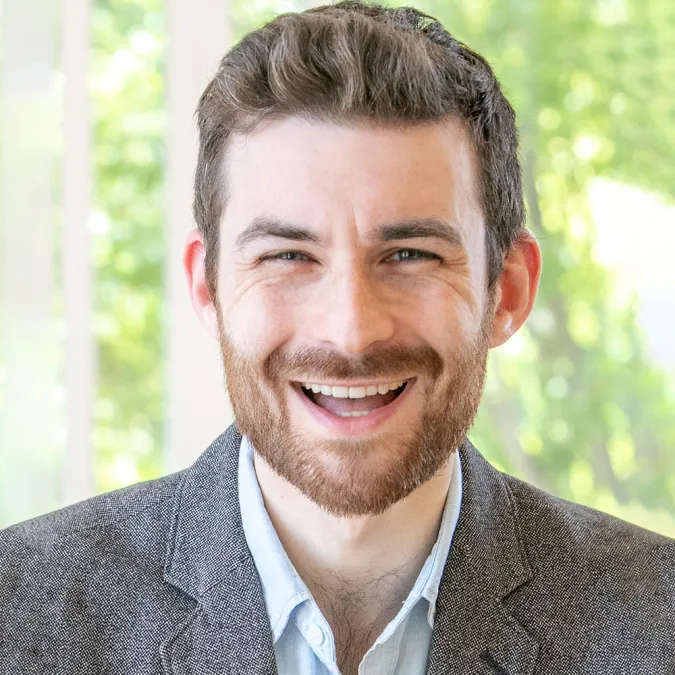
Douglas Henderson, conductor
Tyler Ehrlich, guest conductor
This program will last about 1 hour without intermission.
Program
Stephen Montague
Intrada 1631
Vincent Persichetti
Masquerade
Tyler Ehrlich, conductor
Claude Debussy
La Cathédrale engloutie
John Mackey
The Frozen Cathedral
Dedicated to the memory of Dr. Robert Carnochan.
An inspiring teacher, mentor, musician, and friend.
About the Program
Program notes by Mark Bilyeu.
Stephen Montague
Intrada 1631
Born March 10, 1943, Syracuse, N.Y.
Composed 2003
Duration 12 minutes
Composer and conductor Stephen Montague has received commissions from the London Symphony Orchestra, BBC Proms, London’s Southbank and Barbican Centres, Birmingham Royal Ballet, Warsaw Autumn Festival, Paris, Singapore, and Hong Kong festivals. His Intrada 1631 was inspired by a concert of early South American liturgical music directed by Jeffery Skidmore at the Dartington International Summer Music School in the summer of 2001. One of the most moving and memorable works in the program was a Hanacpachap cussicuinin, a 17th century Catholic liturgical chant written in Quechua, the native language of the Incas. The music was composed by a Franciscan missionary priest named Juan Pérez Bocanegra who lived and worked in Cuzco (Peru), a small village east of Lima in the Jauja Valley, during the early 17th century. Intrada 1631 uses Bocanegra's 20-bar hymn as the basis for an expanded processional scored for the modern forces of a symphonic brass choir with field drums.
Vincent Persichetti
Masquerade
Born June 6, 1915, Philadelphia, PA
Died August 14, 1987, Philidelphia, PA
Copmposed 1965
Premiered January 23, 1966, Baldwin-Wallace College Conservatory of Music, Berea, Ohio,
Duration 12 minutes
In 1961, Vincent Persichetti published his seminal text: Twentieth-Century Harmony, Creative Aspects and Practice. Composer William Schuman called it “an event of historic importance,” saying further “Surely this volume will take its place as one of the great books on the art of music.” And it has been so. Several years after its publication, Baldwin-Wallace College Conservatory of Music commissioned Persichetti to write a work, and he chose to craft a set of variations—his only foray into the form—and used several themes he had created for his textbook. The composer wrote:
I composed phrases of music to illustrate specific points, and years later these fragments began haunting me. I realized that certain examples had a thematic kernel in common. Like the hymns and responses, which demanded expansion and elaboration and became the Liturgical Symphony (Symphony No. 7), these examples from the harmony book evolved into a set of variations for fifty wind and percussion instruments. The work is a masquerade of my book: I called it Masquerade for Band. It was first performed in Berea, Ohio, January 23, 1966, where no one guessed who I was, dressed in my harmonic pirate costume.
Claude Debussy
La cathédral engloutie
Born August 22, 1862, Saint-Germain-en-Laye, France
Died March 25, 1918 , Paris, France
Composed 1909
Duration 6 minutes
Claude Debussy’s La cathédral engloutie, translated to “the engulfed cathedral” is the tenth of twelve Preludes for Piano, Book I. Written in the short span of two months at the conclusion of 1909, the preludes reveal the evolving "impressionist " style of the composer during the mid-point of his composing career. The work takes its title from a legend from Brittany, in which citizens of the legendary city of Ys built a magnificent cathedral to honor their new Christian God, but continued to worship their pagan deities. God punished them by submerging their cathedral, along with the entire city, into the sea. Once every century, on the anniversary of the destruction of the city, the cathedral would reappear for a day, only to disappear again in the mist. Debussy referred to these preludes as "conversations between my piano and myself," and although many of them had highly programmatic titles, Debussy himself placed them at the end of each work, perhaps suggesting that these “conversations” happened before these titles ever existed.
John Mackey
The Frozen Cathedral
Born October 1, 1973, New Philadelphia, Ohio
Composed 2013
Premiered March 22, 2013, UNCG Wind Ensemble, John Locke, conductor
Duration 14 minutes
Although John Mackey has written for orchestras, theater, and extensively for dance, the majority of his work for the past decade has been for wind ensembles. In 2014, he became the youngest composer ever inducted into the American Bandmasters Association. The Frozen Cathedral was a collaboration between Mackey and John Locke, Director of Bands at the University of North Carolina at Greensboro. Locke asked Mackey if he would dedicate the piece to the memory of his late son, who had a particular fascination with Alaska and the scenery of Denali National Park. Mackey was faced with a problem: “how does one write a concert closer, making it joyous and exciting and celebratory, while also acknowledging, at least to myself, that this piece is rooted in unimaginable loss: The death of a child?” Mackey shares, “The other challenge was connecting the piece to Alaska—a place I'd never seen in person. I kept thinking about all of this in literal terms, and I just wasn’t getting anywhere. My wife, who titles all of my pieces, said I should focus on what it is that draws people to these places. People go to the mountains—these monumental, remote, ethereal and awesome parts of the world—as a kind of pilgrimage. It’s a search for the sublime, for transcendence. A great mountain is like a church. 'Call it The Frozen Cathedral,' she said."
About The Artists
Douglas Henderson

Douglas Henderson serves as Associate Director of Bands at The University of Texas at Austin, where his responsibilities include conducting the Wind Symphony, teaching advanced undergraduate and graduate conducting, and teaching band literature. Prior to joining the UT faculty, Dr. Henderson was an Associate Professor, Associate Director of Bands, and Director of Athletic Bands at Oklahoma State University. Dr. Henderson is active as a guest conductor, adjudicator, and clinician throughout the United States, and he has guest conducted in Austria and Japan. He is a frequent guest conductor of the World Youth Wind Orchestra Project (WYWOP), in Schladming, Austria. Dr. Henderson received his Bachelor of Music degree in Music Studies from The University of Texas at Austin, his Master of Music degree in Wind Conducting from Michigan State University, and his Doctor of Musical Arts degree in Wind Conducting from The University of Texas at Austin. From 2003-2006, he was the Associate Director of Bands at J.J. Pearce High School in Richardson, Texas.
Tyler Ehrlich

Tyler Ehrlich (he/him) serves as an assistant instructor and doctoral candidate in wind conducting at The University of Texas at Austin. In this role, he assists with conducting and administrating the university’s concert bands, athletic bands, new music ensemble, and conducting and wind literature courses. Tyler also curates and hosts 89.5 KMFA’s From the Butler School, a weekly program that brings student and faculty performances to the station’s 100,000 weekly listeners. Tyler previously lived in Atlanta, Georgia where he served as conductor of the Emory University Wind Ensemble, director of bands at Decatur High School, and associate conductor of the Atlanta Wind Symphony. He has given invited talks on topics including exoticism, pedagogy, and interpretation at the Midwest Band and Orchestra Clinic, the World Association of Symphonic Bands and Ensembles International Conference, the College Band Directors National Association National Conference, and the Texas and Georgia Music Educators Conferences. Ehrlich has a Master of Music degree from the University of Georgia and a Bachelor of Arts degree summa cum laude from Cornell University. He lives with his partner Brent and their dog Milo. Tyler’s website is tylerehrlich.com.
Wind Symphony
Flute
Diego Arias
Mercedes Gomez
Koustubh Galagali
Camila Martinez
Nichole Thompson
Oboe
Sarah Bird
Genevieve Britten
Caroline Ferguson
Julia Frank
Clarinet
Madison Bookman
Chase Cano
Brynn Carl
Aidan McNeese
Samuel Shin
Aldo Villanueva
Alex Vo
Bassoon
AB Brown
Daniel Ramirez
Mario Rios Valverde
Saxophone
Jackson Byrd
Quinlan Collins
Diego Cruz
Benjamin Kaplan
Jacob Otchis
Zachary Pena
Inbo Shim
Sam Stricklin
Horn
Ben Cummings
Maggie Euscher
Dylan Marquez
Emily Quinn
Austin Waldbusser
Trumpet
Rowan Anthony
Adam Dimas
Kris Montemayor
Parker Potenza
Jackson Wolf
Trombone
Wyatt Andrews
Jace Byrd
Luis Cadena
Erick Galicia
Adrian Sims
Euphonium
Nicolas Love
Andrew Shaffer
Tuba
Grant Fenstad
Benjamin McWilliams
Percussion
Aaryn Avila
Spencer Frismanis
Randy Griner
Ashley (Yu-Chia) Hsu
Chia Yu Lin
Double Bass
Reilly Curren
Harp
Bethany Tran
Keyboard
Xiaoyi Lin
Shuyi Xie
Upcoming Events

Wind Ensemble
20th Anniversary Performance of Circus Maximus
by John Corigliano
Saturday, January 25, 7:30 p.m.
The Long Center for the Performing Arts
Symphony Band
Wednesday, October 9, 8:00 p.m.
Bates Recital Hall
Wind Ensemble
Sunday, October 13, 4:00 p.m.
Bates Recital Hall
Wind Symphony
Friday, November 8, 7:30 p.m.
Bates Recital Hall
Wind Ensemble
Sunday, November 10, 4:00 p.m.
Bates Recital Hall
Symphony Band
Wednesday, November 13, 7:30 p.m.
Bates Rectial Hall
Event Details
Free admission

